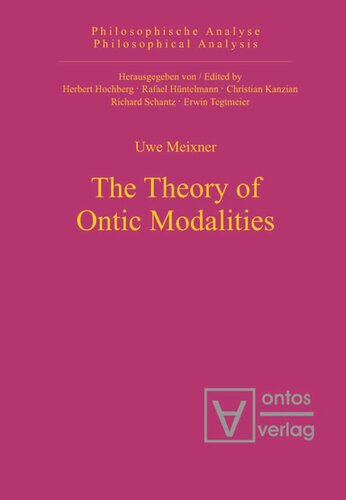

Most ebook files are in PDF format, so you can easily read them using various software such as Foxit Reader or directly on the Google Chrome browser.
Some ebook files are released by publishers in other formats such as .awz, .mobi, .epub, .fb2, etc. You may need to install specific software to read these formats on mobile/PC, such as Calibre.
Please read the tutorial at this link: https://ebookbell.com/faq
We offer FREE conversion to the popular formats you request; however, this may take some time. Therefore, right after payment, please email us, and we will try to provide the service as quickly as possible.
For some exceptional file formats or broken links (if any), please refrain from opening any disputes. Instead, email us first, and we will try to assist within a maximum of 6 hours.
EbookBell Team

5.0
60 reviewsThis book presents a comprehensive, non-model-theoretic theory of ontic necessity and possibility within a formal (and formalized) ontology consisting of states of affairs, properties, and individuals. Its central thesis is that all modalities are reducible to intrinsic (or "logical") possibility and necessity if reference is made to certain states of affairs, called "bases of necessity." The viability of this Bases-Theory of Modality is shown also in the case of conditionals, including counterfactual conditionals. Besides the ontological aspects of the philosophy of modality, also the epistemology of modality is treated in the book. It is shown that the Bases-Theory of Modality provides a satisfactory solution to the epistemological problem of modality. In addition to developing that theory, the book includes detailed discussions of positions in the philosophy of modality maintained by Alvin Plantinga, David Lewis, Charles Chihara, Graeme Forbes, David Armstrong, and others. Among the themes treated are: possibilism vs. actualism; the theory of essences; conceivability and possibility; the nature of possible worlds; the nature of logical, nomological, and metaphysical possibility and necessity.